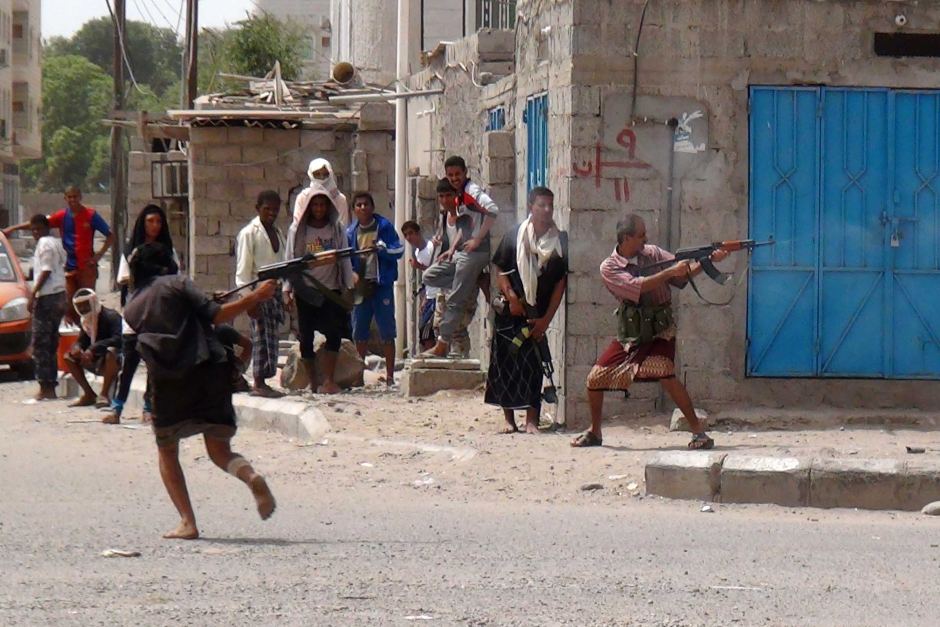Yemen is on the edge of civil war yet television screens worldwide are not bombarding viewers with images of children dying and people suffering as a result of a Saudi led coalition against the country. Yemen is strategically important because it sits on the Bab al-Mandab strait, a narrow waterway linking the Red Sea with the Gulf of Aden, through which much of the world’s oil shipments pass.
So why is Saudi Arabia bombing Yemen?
“According to the Saudi government, this destructive military action is required because they want to bring the so called legitimate government back into power,” Suraya Dadoo, a researcher for the Media Review Network (MRN) in South Africa explains.
The current government in the region is being run by Mansur Hadi who has been president of Yemen since February 2012. He however resigned his position as president in January of this year but rescinded that resignation after Houthi rebels managed to take over large parts of Yemen.
“The Saudi regime is very concerned that these Houti rebels will take over the government and they are very keen to have President Hadi in power as he is friendly towards the Saudi government,” Dadoo went further.
Criticism of Islam
Right now Yemen is said to be one step away from famine with almost 80 percent of the population in need of humanitarian aid, yet the media coverage of this situation has been limited. In South Africa, in particular where so many protests are being held as a result of the conflict in Palestine there has not been one protest held as a result of the Yemeni crisis.
“To a large extent the silence within the South African Muslim community is due to the fact that we feel if we criticise Saudi Arabia we are criticising Islam and we are criticising a Muslim government,” Dadoo continued.
Saudi Arabia is home to two of Islam’s most holy sites and people may be concerned about jeopardising their ability to visit Mecca and Medina to make their pilgrimage, said Dadoo. Furthermore, various organisations within South Africa are funded by Saudi Arabia.
Last year at this time people took to the streets to protest the bombing of Gaza and people rallied together to make the world aware that South Africans stand in solidarity with the people of Palestine.
“Saudi Arabia is doing exactly the same thing to the Yemeni people, they are being bombed daily,” Dadoo stressed.
“Whilst we feel that affiliation towards Palestine that shouldn’t make us numb and blind to the suffering of Muslims the world over”.
Petrol Dollars
Mainstream and even alternative media coverage on the Yemen crisis as opposed to last year’s bombardment of the Gaza strip has been disproportionate.
“A lot of it has to do with Saudi Arabia buying off certain media outlets using what we call petrol dollars to silence media,” Dadoo noted.
Whilst the coalition against Yemen is being led by Saudi Arabia, it is also backed by the United States.
“To a large degree the United States doesn’t want its own population to know that its involved in yet another regime change operation in the Middle East,” Dadoo explained.
Humanitarian organisations such as the Red Crescent Society are said to be reporting on true atrocities occurring in Yemen whereas main stream media might only cover one bombing a day. Devastating coalition airstrikes aimed at stopping the Houthi offensive have created a virtual blockade in Yemen, starving a trapped civilian population of fuel, water, food and vital medical supplies. Civilians are also increasingly caught in the cross-fire, as aerial attacks and shelling target densely populated residential areas.
Nearly 1 million people are now displaced and an estimated 21.1 million people (80% of the country’s population) are in need of humanitarian assistance. Medicins Sans Frontieres has warned that such blatant disregard for civilians and vital infrastructure represents a clear violation of international law, and is calling for a cessation of attacks and unhindered access of goods and supplies to areas affected by the ongoing conflict.
“A lot of media is under intense pressure not to report the situation as it is,” Dadoo stated.
Islamaphobic bias in media
With most of the stories coming from the Middle East being on war and destructive and oppressive regimes that are not democratic, the public’s perception of Islam has become warped, Dadoo argued.
“People associate Muslims and Islam with terrorism so when something happens to them there isn’t much sympathy for Muslims.”
Where violence perpetrated against Muslims is not widely covered, violence perpetrated by Muslim extremists against populations are covered extensively in the press.
Right now, Syria is still in the midst of a civil war, Iraq attempts to root out the Islamic State, the Palestinian people live daily under an apartheid regime, the Uighurs in China are being persecuted as well as the Rohingya people, known to some as the worlds’ least wanted people. VOC (Umarah Hartley)






 WhatsApp us
WhatsApp us 


1 comment
in addition,,,,…many of our local ulema and orgs have egg and mud on their faces, they supported the ARMED insurrection in syria on the side of the usa eu nato turker saudis gulf states and zionist israel in supporting aqnd arming the rebel fsa isil isis in syria then iraq then the saudis in yemen,…..now on account of blowback theyve been proved wrong and trying to distance themselves from isis….its been a domino effect….